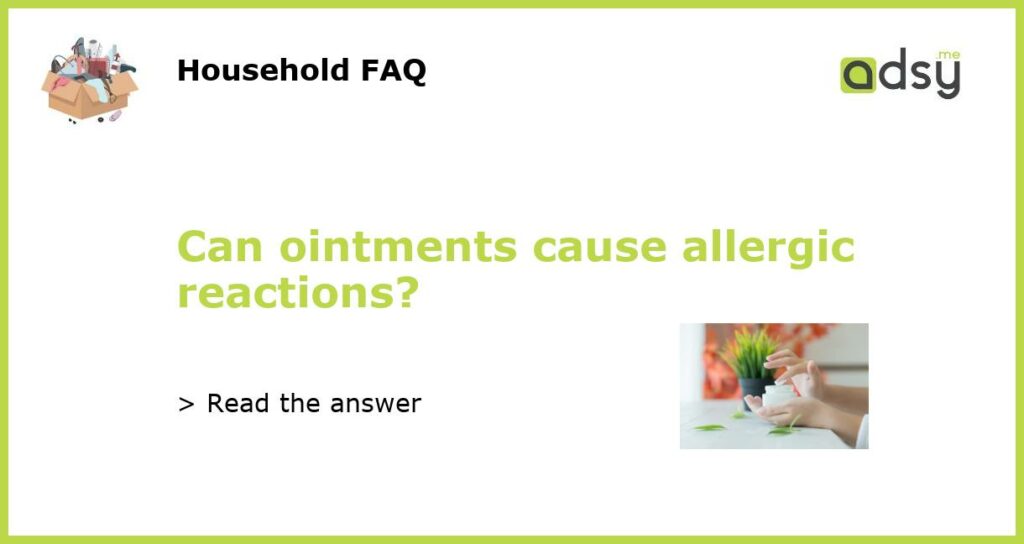What are ointments?
An ointment is a semi-solid medication that is applied topically (on the skin) for treating various health conditions. Generally, ointments contain a combination of ingredients like oils, waxes, and water, which help them to be applied smoothly on the skin. However, ointments are known to have some side effects, including allergic reactions.
How do ointments cause allergic reactions?
Ointments can lead to allergic reactions when the skin reacts to the ingredients of the ointment. The skin may become inflamed, red, itchy, and swollen in response. This type of reaction occurs when the immune system in the body identifies the ointment’s ingredient as harmful and produces antibodies to fight against it.
Which ointment ingredients commonly cause allergic reactions?
Various ingredients in ointments can cause allergic reactions. Some of the most common ingredients that can lead to allergies include neomycin, bacitracin, lanolin, and formaldehyde. Certain fragrances and preservatives that are used in ointments can also cause an allergic reaction. People with sensitive skin are at risk of experiencing an allergic reaction when using an ointment because of these ingredients.
How can people avoid allergic reactions caused by ointments?
To prevent allergic reactions caused by ointments, it is essential to know which ingredients you are allergic to. You can consult with a dermatologist to identify any allergies you may have to specific chemicals or substances. Once you identify the allergen, avoid using ointments with that ingredient. You can also opt for hypoallergenic ointments or use natural products that do not contain artificial fragrances and preservatives.
What should people do if they experience an allergic reaction to ointments?
If you experience an allergic reaction to an ointment, stop using the product immediately. Wash the affected area with soap and water to remove the ointment residue. You can also use over-the-counter antihistamines or corticosteroid creams to reduce the redness, itching, and swelling caused by the allergic reaction. If the symptoms are severe, seek medical attention immediately.






